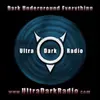Newcomer Live Radio Stations
Radio Stations
Choose a Genre
Newcomer: A Fresh Face in the Radio Landscape
In the ever-evolving world of radio and broadcasting, new stations and networks frequently emerge, bringing fresh perspectives and innovative content to the airwaves. One such term that often catches the attention of listeners and industry professionals alike is "Newcomer." While the term itself may be broad, it is typically used to describe new or emerging radio stations, hosts, or formats that are making their debut or carving out their place in the competitive media space.
What Does "Newcomer" Mean in the Radio Industry?
A Newcomer in the radio world generally refers to a station or entity that is relatively new to the industry, having recently launched or begun broadcasting. This could include:
Newly Established Radio Stations: Stations that have just hit the airwaves, offering new programming, new formats, or catering to previously underserved audiences.
Emerging Radio Hosts: Talented personalities or broadcasters who are gaining recognition and building their fan base, often bringing fresh ideas and a unique approach to traditional radio.
New Formats or Genres: As the media landscape changes, new radio formats emerge to cater to niche interests, from cutting-edge music genres to specialized talk shows on emerging topics.
The Role of Newcomers in Revolutionizing Radio
The radio industry, like any other, thrives on innovation. Newcomer stations or hosts bring with them an opportunity for change and innovation that can revitalize old formats or introduce entirely new concepts. Many times, these newcomers challenge traditional broadcasting norms by experimenting with new styles of content or integrating modern technologies, such as live streaming and podcasting, into their programming.
For example, some Newcomer stations may focus on modern genres that mainstream radio hasn’t explored, giving rise to niche genres like indie music, electronic, or even talk radio formats that delve into contemporary social issues, trends, or digital culture. By attracting younger audiences who may be less inclined to tune into traditional stations, these newcomers also play an important role in diversifying the radio landscape and shaping future trends.
The Impact of Newcomer Stations on Listener Choice
One of the main ways newcomers influence the radio industry is by offering an alternative to the mainstream. Many established stations tend to stick with tried-and-true formats, offering a mix of top 40 hits, news, or sports. In contrast, newcomer stations may experiment with niche programming, giving listeners an opportunity to explore new music, ideas, and voices.
Niche Music Stations: Newcomer music stations often dive deep into specific genres, such as underground hip-hop, jazz fusion, or regional music from around the world. These stations provide something unique for music enthusiasts who feel disconnected from the mainstream offerings.
Innovative Talk Shows: Newcomer talk shows might explore contemporary issues that resonate with younger or more diverse audiences. These could range from podcasts and livestreamed discussions about politics, social justice, pop culture, or even the impact of technology on daily life.
Audience-Driven Programming: A hallmark of many newcomers in radio is their close interaction with their audience. Whether through social media, live call-ins, or online voting, these stations can often create programming that’s directly shaped by listener feedback, making the experience more personal and relevant to their fanbase.
Why Do Newcomer Stations Matter?
In a media world dominated by conglomerates and established networks, Newcomer stations represent a valuable opportunity for innovation and creativity. These newcomers break away from conventional broadcasting styles, infusing fresh ideas, different cultural perspectives, and innovative formats into an otherwise standardized industry. Their independent spirit and commitment to offering something distinct ensure that the radio landscape remains dynamic and ever-changing.
Additionally, Newcomer radio hosts often have a more intimate connection with their audience. Because many of these hosts are just starting to gain recognition, they tend to be more accessible and relatable, forming stronger bonds with listeners. This direct connection often leads to loyal fan bases that are highly engaged with the programming.
The Future of Newcomers in the Radio Industry
The continued rise of digital radio and streaming platforms has created more opportunities for newcomers to enter the scene. While traditional radio stations still have a large audience, platforms like internet radio and podcasts have opened up new avenues for emerging broadcasters to gain visibility. Newcomers no longer need massive budgets or corporate backing to make a mark; they can launch a station, build a show, or even create a unique format with minimal resources, thanks to the accessibility of digital tools and social media.
As long as innovation remains a driving force, newcomers will continue to redefine the possibilities of what radio can be. Whether through fresh formats, unique personalities, or cutting-edge technology, newcomers will continue to challenge the status quo and offer something new for audiences seeking variety and discovery.
In summary, newcomers in the radio industry embody the spirit of progress and adaptation, ensuring that the airwaves are never static and always evolving. Whether you’re a listener on the hunt for fresh content or a new broadcaster hoping to break into the industry, the wave of newcomers is one to watch—and enjoy.
In the ever-evolving world of radio and broadcasting, new stations and networks frequently emerge, bringing fresh perspectives and innovative content to the airwaves. One such term that often catches the attention of listeners and industry professionals alike is "Newcomer." While the term itself may be broad, it is typically used to describe new or emerging radio stations, hosts, or formats that are making their debut or carving out their place in the competitive media space.
What Does "Newcomer" Mean in the Radio Industry?
A Newcomer in the radio world generally refers to a station or entity that is relatively new to the industry, having recently launched or begun broadcasting. This could include:
Newly Established Radio Stations: Stations that have just hit the airwaves, offering new programming, new formats, or catering to previously underserved audiences.
Emerging Radio Hosts: Talented personalities or broadcasters who are gaining recognition and building their fan base, often bringing fresh ideas and a unique approach to traditional radio.
New Formats or Genres: As the media landscape changes, new radio formats emerge to cater to niche interests, from cutting-edge music genres to specialized talk shows on emerging topics.
The Role of Newcomers in Revolutionizing Radio
The radio industry, like any other, thrives on innovation. Newcomer stations or hosts bring with them an opportunity for change and innovation that can revitalize old formats or introduce entirely new concepts. Many times, these newcomers challenge traditional broadcasting norms by experimenting with new styles of content or integrating modern technologies, such as live streaming and podcasting, into their programming.
For example, some Newcomer stations may focus on modern genres that mainstream radio hasn’t explored, giving rise to niche genres like indie music, electronic, or even talk radio formats that delve into contemporary social issues, trends, or digital culture. By attracting younger audiences who may be less inclined to tune into traditional stations, these newcomers also play an important role in diversifying the radio landscape and shaping future trends.
The Impact of Newcomer Stations on Listener Choice
One of the main ways newcomers influence the radio industry is by offering an alternative to the mainstream. Many established stations tend to stick with tried-and-true formats, offering a mix of top 40 hits, news, or sports. In contrast, newcomer stations may experiment with niche programming, giving listeners an opportunity to explore new music, ideas, and voices.
Niche Music Stations: Newcomer music stations often dive deep into specific genres, such as underground hip-hop, jazz fusion, or regional music from around the world. These stations provide something unique for music enthusiasts who feel disconnected from the mainstream offerings.
Innovative Talk Shows: Newcomer talk shows might explore contemporary issues that resonate with younger or more diverse audiences. These could range from podcasts and livestreamed discussions about politics, social justice, pop culture, or even the impact of technology on daily life.
Audience-Driven Programming: A hallmark of many newcomers in radio is their close interaction with their audience. Whether through social media, live call-ins, or online voting, these stations can often create programming that’s directly shaped by listener feedback, making the experience more personal and relevant to their fanbase.
Why Do Newcomer Stations Matter?
In a media world dominated by conglomerates and established networks, Newcomer stations represent a valuable opportunity for innovation and creativity. These newcomers break away from conventional broadcasting styles, infusing fresh ideas, different cultural perspectives, and innovative formats into an otherwise standardized industry. Their independent spirit and commitment to offering something distinct ensure that the radio landscape remains dynamic and ever-changing.
Additionally, Newcomer radio hosts often have a more intimate connection with their audience. Because many of these hosts are just starting to gain recognition, they tend to be more accessible and relatable, forming stronger bonds with listeners. This direct connection often leads to loyal fan bases that are highly engaged with the programming.
The Future of Newcomers in the Radio Industry
The continued rise of digital radio and streaming platforms has created more opportunities for newcomers to enter the scene. While traditional radio stations still have a large audience, platforms like internet radio and podcasts have opened up new avenues for emerging broadcasters to gain visibility. Newcomers no longer need massive budgets or corporate backing to make a mark; they can launch a station, build a show, or even create a unique format with minimal resources, thanks to the accessibility of digital tools and social media.
As long as innovation remains a driving force, newcomers will continue to redefine the possibilities of what radio can be. Whether through fresh formats, unique personalities, or cutting-edge technology, newcomers will continue to challenge the status quo and offer something new for audiences seeking variety and discovery.
In summary, newcomers in the radio industry embody the spirit of progress and adaptation, ensuring that the airwaves are never static and always evolving. Whether you’re a listener on the hunt for fresh content or a new broadcaster hoping to break into the industry, the wave of newcomers is one to watch—and enjoy.


